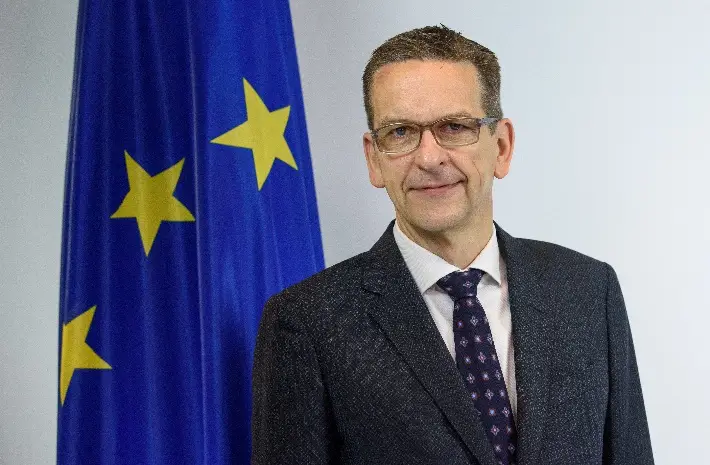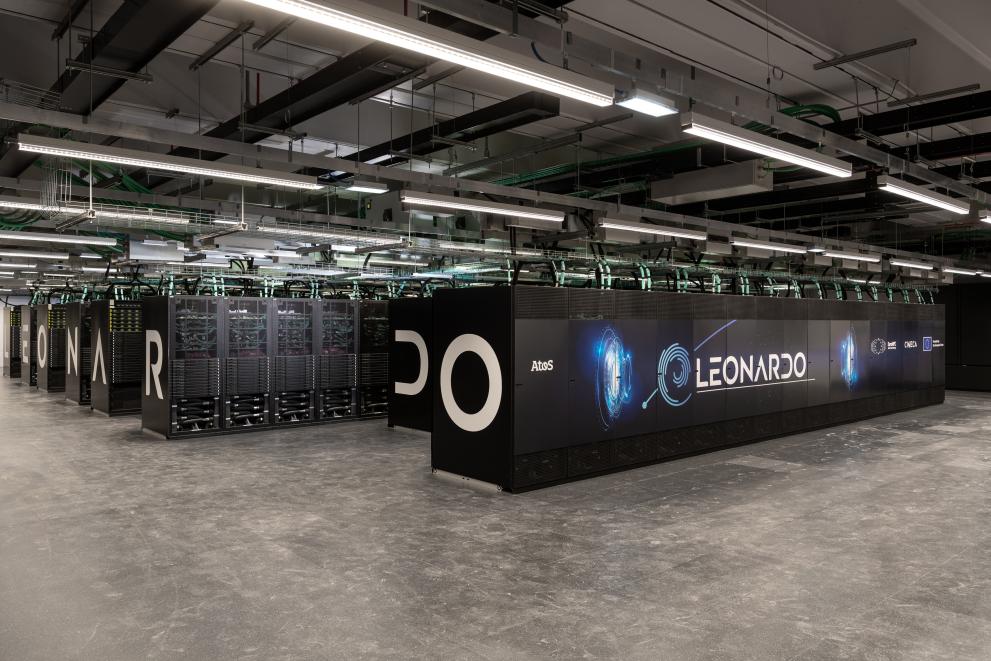A European ecosystem at the forefront of global AI competition

Kilian Gross, Head of Unit A2 (Artificial Intelligence Policy Development and Coordination, DG CNECT), European Commission
Regulation of AI, Internet & Data (RAID) sat down with Kilian Gross, Head of Unit A2 for Artificial Intelligence Policy Development and Coordination at DG CNECT within the European Commission.
Since taking on leadership of Unit A2 for Artificial Intelligence Policy Development and Coordination at DG CNECT in January 2020, Kilian Gross has been at the helm of shaping the EU’s approach to AI governance, innovation and risk mitigation. His expertise spans a wide array of initiatives, from spearheading a white paper on AI that presents options on how to promote the uptake of Artificial Intelligence, to proposing a legal framework aimed at addressing risks.
The unit also updated the Coordinated Plan, which supports AI development and alignment of national policies within the EU and ensures its implementation in parallel with the AI Act. Gross also led the legal team that prepared and supported the negotiations of the proposal for a European Chips Act.
When asked about the potential impact of the European Artificial Intelligence Act (AI Act) on SMEs, Gross is quick to address concerns about compliance burdens. “The AI Act supports innovation by increasing users’ trust and thereby the demand for AI used by companies and public authorities,” he says.
“The European Commission aims to make Europe a global centre for trustworthy AI”
He also elaborates on specific provisions designed to support SMEs, such as privileged access to regulatory sandboxes. “Developers of AI systems can expect organisational and legal support in trying out their solutions without risking infringing legislation, and simplified documentation requirements,” he says. “In addition, there will be special support measures to help SMEs in implementing the AI Act’s requirements.
“Furthermore, the AI Act provides for special legal exceptions that reduce the bureaucratic effort required of SMEs,” Gross adds, highlighting the EU’s commitment to fostering a supportive environment for small businesses.
Gross highlights a recent package of measures launched by the Commission to bolster AI innovation among European startups and SMEs. “This package will generate an investment close to EUR 4 billion in generative AI until 2027,” he says. The measures encompass various support mechanisms such as access to data, computing power, algorithmic development and talent.
The investment also includes AI factories acquiring EuroHPC supercomputers with AI capabilities and developing AI-oriented microprocessors. “Moreover, the Commission will provide financial support for startup incubation and scale-up activities as well as the development of novel use cases and emerging applications in several industrial and societal sectors.”

Turning to the broader landscape of AI innovation in Europe, Gross shares his vision for the region’s future. “The European Commission aims to make Europe a global centre for trustworthy AI,” he says. Despite the US dominance of established tech giants, Gross remains optimistic about the potential for European startups to compete on a global scale.
“With the rise of AI, the tech market is becoming more disruptive. In recent years, we have already seen some European start-up frontrunners managing to develop AI solutions that can keep up with ‘big tech’ products and services.
“At the same time, established tech companies often already have resources that facilitate the development of AI systems. This is one of the reasons why we have also seen profitable collaborations between European start-ups and established tech companies in recent months.
“Through our innovation-promoting initiatives, we will create a European ecosystem for trustworthy AI, which creates the best condition for different company structures to be at the forefront of global AI competition.”




